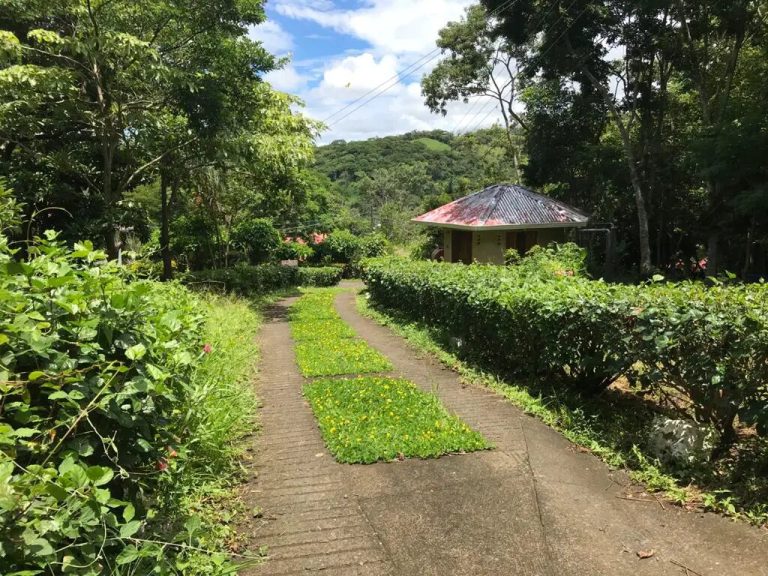26 de mayo 2023

Children of Exile: The Births “Sowing Hope” in the Camp of Nicaraguan Farmers

PUBLICIDAD 1M
PUBLICIDAD 4D
PUBLICIDAD 5D
The co-founder of the organization emphasizes that "even the people from the Matagalpa Mayor's Office" used to hold workshops there

Photo at the Maria Cavalleri Foundation property.
The dictatorship of Daniel Ortega and Rosario Murillo waited eleven months to confiscate the installations of the Maria Cavalleri Foundation – a farm measuring just under 42 acres (17 hectares) and valued at three to four million dollars, according to Zoraida Torrez, co-founder of the organization. The functionaries of Nicaragua’s Attorney General’s Office waited until the Foundation, whose legal status was canceled on June 2, 2022, had cleaned and carried out the maintenance of the property, before finally seizing it over on May 19, 2023.
The farm is located in the Molino Norte community, on the highway between Matagalpa and Jinotega. Within the property is a constructed area, “approximately 1.7 acres”, while the rest of the terrain “has been reforested,” precisely because one of the Foundation’s objectives was “to care for the environment,” Torrez explained.
“The construction itself is sizable,” Torrez stated in an interview granted to the internet news program Esta Noche, and the news site Confidencial. There’s an auditorium, which the Foundation rented out to other organizations for trainings or spiritual retreats. “Even people from the Matagalpa Mayor’s Office went there to hold workshops,” she emphasized.
There’’s also a library, a dormitory, a dining area and a second small auditorium. “We’re talking about a lot of money [invested],” Torrez stated. However, she considered that the property’s sentimental value was still greater, since “this center was a dream for us women of Matagalpa.” Right up until the day they confiscated it, the women had harbored the hope of recovering it.
“We had hopes that we were going to maintain our center in that way, closed for a time, but that some way or other we’d be able to recover it, because it’s something that’s ours, that we’ve worked for, and we did everything with great transparency,” Torrez insisted.
The occupation of the Foundation began on May 19, when seven people with shirts identifying them as part of the Attorney General’s office arrived at the site and proceeded to measure the terrain and to ask about the buildings. That situation moved the farm’s owners to present themselves at the property to find out what was happening.
“We asked them: “What’s the objective of going around measuring? Could you offer us some explanation?” But the functionaries acted “as if we didn’t exist, even though we were right there, standing like posts.” After they finished measuring the farm, the employees got in a vehicle and left the property.
The founders of the Fundacion Maria Cavalieri “feel defenseless,” Zoraida stressed. At the very least, “we expected an explanation, but they can’t even do that, they don’t have the courage to look at us and say: “We’re here because the government sent us,” she commented.
Given that situation “there’s nothing left for us, but to continue denouncing on a social level, at a citizen level, at an international level. To collect all this information, this whole history that perhaps will be useful to us in the future,” Torres added.
The Maria Cavalleri Foundation has been in existence for the past 20 years, promoting care of nature, cultural interchanges, education, and creativity. These functions were all shuttered by the regime with the 2022 decision “founded on false arguments” to close the foundation.
The proposal to close it was presented by FSLN legislator Filiberto Rodriguez, who accused the Foundation of failing to comply with their “obligations under the law,” and of hindering the “control and surveillance” of the General Directorate of Registry and Control of Non-profit Organizations, a branch of Nicaragua’s Interior Ministry.
“We collaborated responsibly with the Ministry, turning in the information of the Directive Board, the accounts, the books, everything that was needed. But that has no value to them because they say we haven’t submitted anything,” Torrez lamented. “Those are merely excuses to confiscate the place.”
This article was originally published in Spanish in Confidencial and translated by Havana Times.
PUBLICIDAD 3M
Confidencial es un diario digital nicaragüense, de formato multimedia, fundado por Carlos F. Chamorro en junio de 1996. Inició como un semanario impreso y hoy es un medio de referencia regional con información, análisis, entrevistas, perfiles, reportajes e investigaciones sobre Nicaragua, informando desde el exilio por la persecución política de la dictadura de Daniel Ortega y Rosario Murillo.
PUBLICIDAD 3D